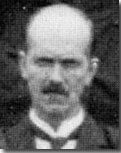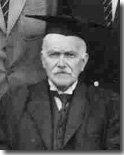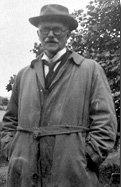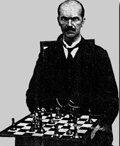
Charles Allen Du Val
His life and works
Cyril Stanley Kipping
| Cyril Stanley Kipping |
|---|
| Born: 1892 London |
| Died: 1964 Walsall, Staffordshire |
| Father |
| Frederic Stanley Kipping 1863-1949 |
| Mother |
| Lilian Florence Holland 1868-1949 |
| Siblings |
| Florence Frieda Kipping born 1889 |
| Frederic Barry Kipping born 1901 |
| Kathleen Esme Kipping born 1904 |
Cyril Stanley Kipping was born on 10 October 1891 at 7 Milborne Grove, South Kensington in London. He was the son of Frederic Stanley Kipping and his wife nee Lily Holland, granddaughter of Charles Allen Du Val. At that time his father was chief demonstrator in the Chemistry Department at the Central Technical College of the City and Guilds of London Institute. He was baptised Cyril Henry Stanley, but later in life he invariably dropped his second initial.
In 1897, his father was elected a Fellow of the Royal Society, and was appointed Professor of Chemistry at University College Nottingham, a post he held until his retirement in 1936. As two of Mrs. Kipping's sisters also married distinguished chemists he not only had a father, but also two uncles who were Fellows of the Royal Society. The family's home was in Clumber Road West in The Park, a pleasant residential district of Nottingham. In September 1902 he entered Nottingham High School where he won numerous prizes in mathematics and science. He obtained the Oxford and Cambridge Board's Lower Certificate in 1906, passed the London University Matriculation in January 1908, and the Oxford and Cambridge Higher Certificate in 1909. At the same time his interest in chess was developing. He left school in July 1910 and went to Trinity Hall in Cambridge where he read for the National Sciences Tripos. He played tennis for his college and launched into the composition of chess problems (1).
He obtained a First in Part I of the Tripos in 1912, a First in Part II in 1913, and was awarded the degree of Bachelor of Arts on 7 June 1913. He began researching in organic chemistry at Cambridge, but in September 1914 decided instead to take a teaching appointment at Weymouth College. In January 1919 he took his Master of Arts degree at Cambridge, and joined the teaching staff of Bradfield College in Berkshire. But by the summer of that year he became an assistant master at Pocklington School in Yorkshire, where he spent five happy years.
There he used his talent for juggling in 1920 to train a troupe of jugglers who gave a display at a school concert. This popular performance was repeated annually at Pocklington. Meanwhile be continued to compose chess problems and in 1923 published a book for beginners called The Chess Problem Hobby.
In 1924 he was appointed the first headmaster of the new Wednesbury Boys' High School in Staffordshire. Across five acres of school playing field, partly obscured by trees, stood the house where Cyril Kipping lived until he retired in 1956.
Chess became part of the school curriculum in 1928, a special demonstration board being mounted on an easel to demonstrate the moves, important openings, and end games. Kipping would select several boys to play simultaneously, almost invariably winning all the games but awarding the victor a prized shilling if he did not. The school soon acquired a unique reputation for chess, and local schools were usually overwhelmed in matches. Famous players were invited to give lectures and simultaneous displays. In 1939 the school was presented with the British Chess Federation Shield for distinguished achievements in chess.
Cyril Stanley Kipping was a tall man with a domed bald head, deep set eyes, and a heavy moustache. Yet underneath his formidable exterior he was a kindly man, with a great sense of humour. He had no sense or care for dress whatsoever. He invariably wore a black shiny suit, white shirt with winged collar and black tie, and black boots. His outdoor attire normally consisted of an ancient trilby hat, a brown muffler and a fawn raincoat, and he carried a thick gnarled walking stick. In school, attired in academic gown and mortar board, he was an awe-inspiring figure. He had a weakness of the throat, caused by gargling with dilute carbolic acid. For relief he occasionally took a glycerine and thymol lozenge, but its effect was offset by his habit of smoking hand-rolled cigarettes made from Old Judge tobacco.
Some of his remarks to pupils were long remembered. "Your writing is perfectly deplorable", he once remarked. "It's far too legible!". And, stroking his moustache, he mused "You know the things they do with the atom these days seem to me to be positively indecent!"
Despite his ancestry (2), he took little interest in the arts. He was passionately fond of tennis, and keen on football and cricket. However his greatest interest remained chess problems. For many years until 1930 he was Problem Editor of The Chess Amateur. Then he became General Editor of The Problemist (the publication of the British Chess Problem Society) from 1932 until his death. Also from 1935 to 1958 he was Problem Editor of the magazine Chess. It is estimated that he himself composed over 7,000 chess problems.
When in December 1956, at the age of 65, he retired as headmaster, half his interest in life was taken from him. He moved to Walsall, and there tried to adjust himself to the new conditions. He visited friends, old colleagues, and neighbouring headmasters whom he knew, and received their hospitality with gratitude and appreciation. But he always returned to his own lonely wife-less home with a tinge of regret. Sometimes he received visitors, and he kept up his chess problem work and contacts to the end.
He was rewarded in 1957 by being made an International Judge of Chess Compositions by the international body governing chess activities throughout the world, and two years later was one of two Englishmen among the first to receive the newly created title of "Master of Chess Composition". Had he lived longer he would no doubt have received the recently introduced higher honour of "Grand Master". He died suddenly at his home on 17 February 1964 (3).
(1) J.M. Rice in his book ABC of Chess Problems quotes a three-move problem, which appeared above Kipping's name in the Manchester Evening News in 1911, referring to it as "the most famous problem ever composed".
(2) He was the great-grandson of Charles Allen Du Val, and grandson of James Stanley Kipping who was a great opera-lover.
(3) Information an article by C.P. Vale in The Blackcountryman Volume 11 No. 4 quoted in http://www.wbhs.pwp.blueyonder.co.uk/staff/kipping1.htm




